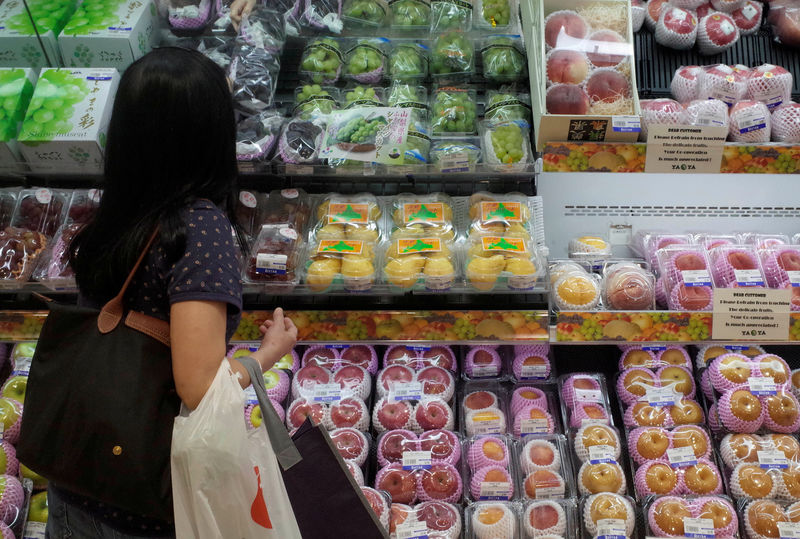By Kaori Kaneko and Daniel Leussink
TOKYO (Reuters) - Japan's household spending rose for a seventh straight month in June, amid signs resilient consumer activity could help counter the effects of weak global demand, although the consumption outlook was clouded by softer wages.
The Bank of Japan is hopeful that a pick-up in private consumption will help it achieve its 2% inflation target even as an intensifying U.S.-China trade war hurts exports and business sentiment.
Household spending rose 2.7% in June from a year earlier, nearly double the median forecast for a 1.4% gain, government data showed on Tuesday.
In May, spending rose at the fastest pace in four years, in a sign improving domestic demand would offer some support for an economy facing growing external pressure.
From the previous month, household spending declined 2.8% in June, which compared with a median estimate for a 3.0% drop.
"Consumer spending improved in the second quarter, especially in the service sector, from the previous quarter. The employment situation is recovering, so private spending is firm," said Hiroaki Mutou, chief economist at Tokai Tokyo Research Institute.
"But wage recovery is subdued, so consumer spending is not strong enough to boost the growth."
The government maintained its view that "consumer spending is picking up".
Spending on service items, such as domestic package tours, accommodation and air and rail travel, contributed to the growth in the household spending, the data showed.
There were some areas of concern about the outlook. Separate data showed real wages in Japan adjusted for inflation slipped for a sixth straight month in June, which could undermine domestic consumption ahead of a planned sales tax hike in October.
Japan plans to increase the sales tax to 10% this October, unless there is an economic shock on the scale of the collapse of Lehman Brothers, officials say.
Some policymakers worry the tax hike would further damage consumer sentiment and hurt an economy already under pressure from the U.S.-China trade war and slowing global demand.
The BOJ last week held off expanding stimulus but committed to doing so "without hesitation" if a global slowdown jeopardizes the country's economic recovery.
Recent yen appreciation and falls in share prices could fuel speculation for further central bank monetary easing.
U.S. Treasury Secretary Steven Mnuchin said on Monday the government had determined that China was manipulating its currency, which knocked the dollar and Wall Street share prices sharply lower.
The dollar stood around 106.20 yen after slipping to as far as around 105.50 yen on Tuesday while Tokyo share prices also (N225) tumbled.
Japan's economic growth likely slowed in April-June as cooling global demand and trade tensions weighed on exports, but brisk domestic demand offset some of the external pressure, a Reuters poll showed.
The government will announce the growth data on Friday.
